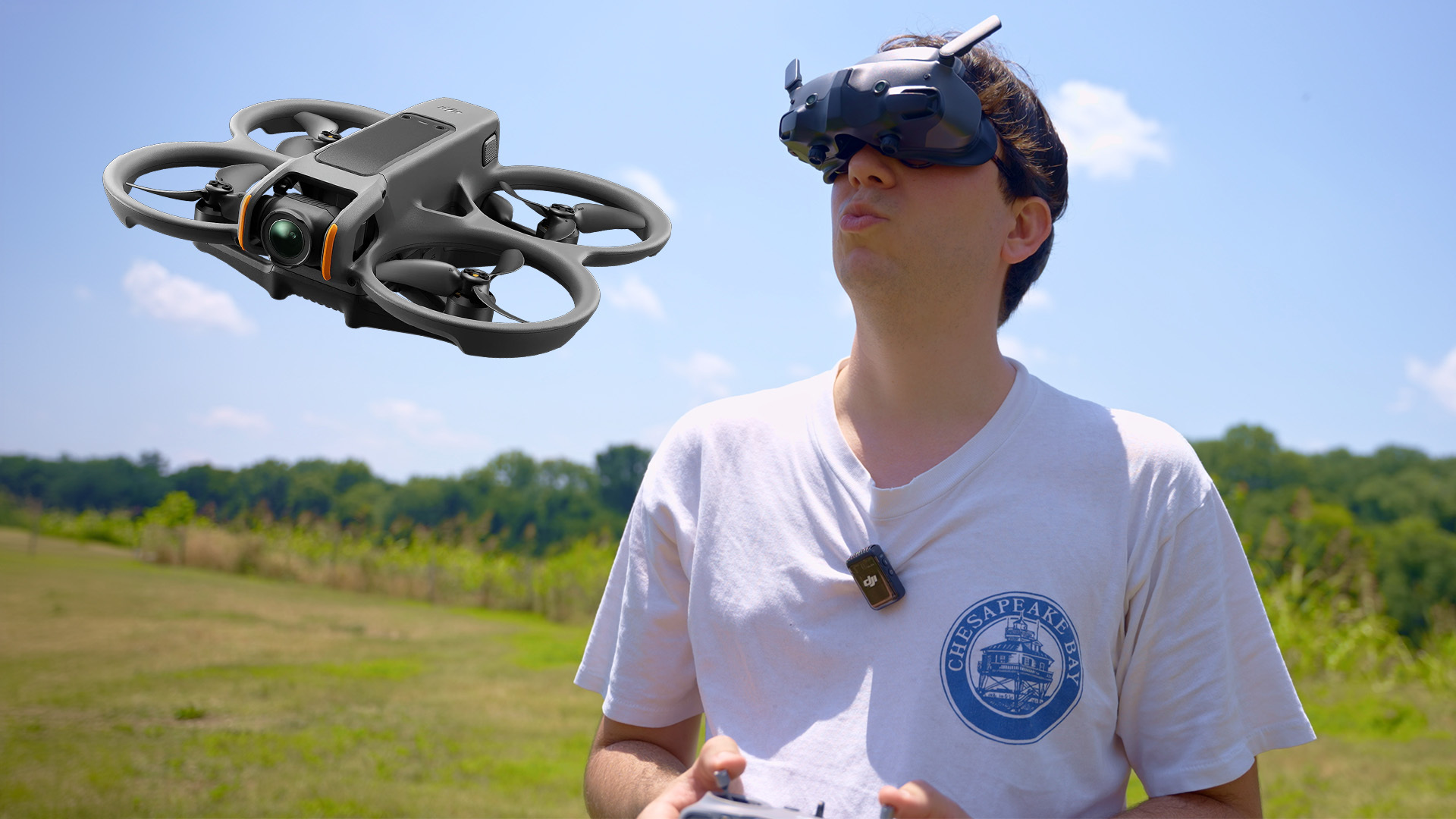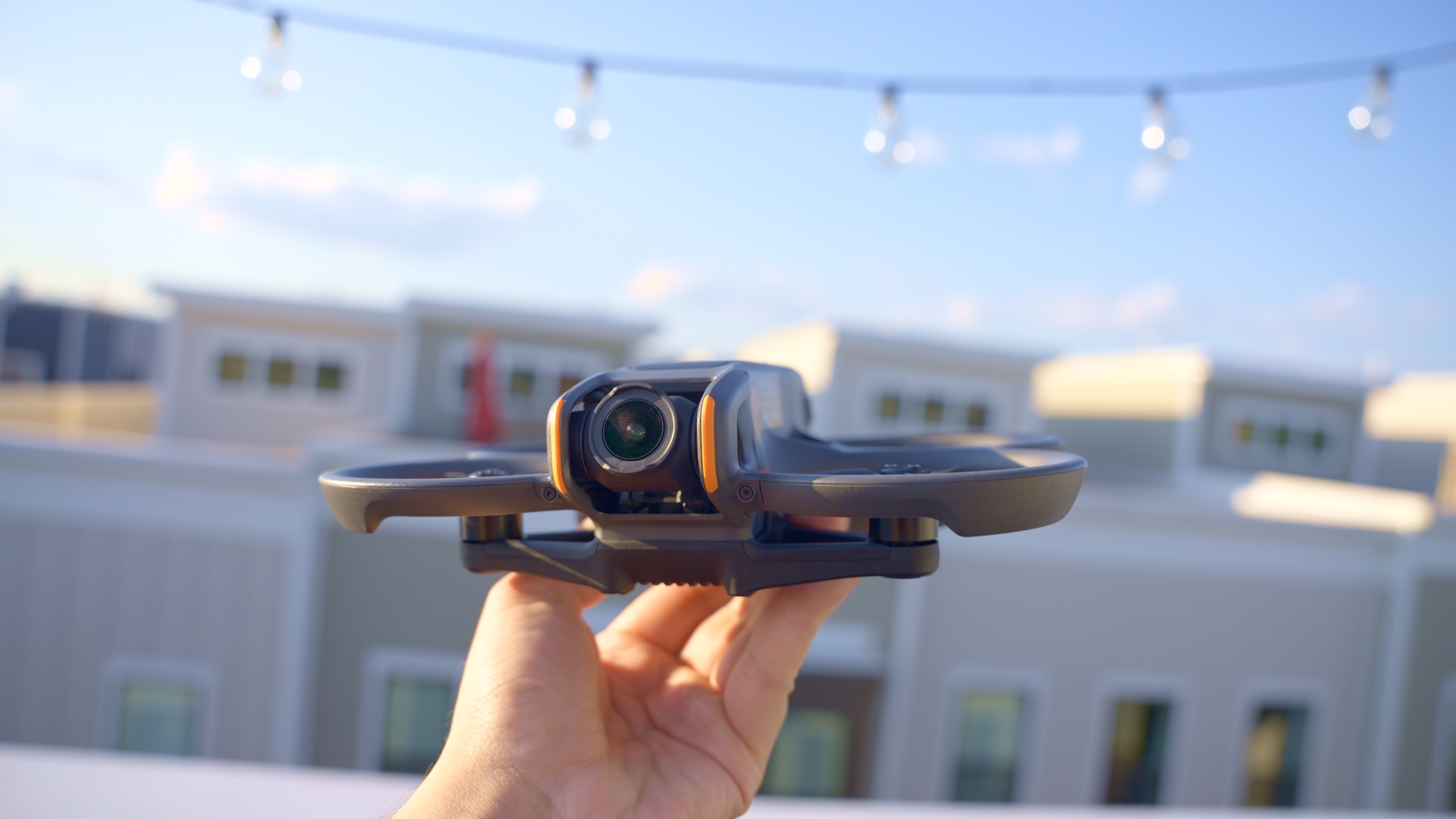
The past month, I’ve exclusively flown the DJI Avata 2, and it’s been an exhilarating introduction to FPV flying. That said, there are things that surprised me from hours of testing this drone in all sorts of settings.
I’ve been using drones professionally for over 6 years now, and honestly, they became boring a long time ago. But as my first FPV drone, the Avata 2 has been an eye-opening experience. It’s fast, acrobatic, and makes me feel like I’m soaring. Compared to even the most expensive drones I’ve tested, the Avata 2 is noticeably more nimble and responsive, and can reach a top speed of 60 mph in Manual mode, which is great for thrill-seekers, but definitely something you have to work your way up to.
For the full experience, watch the video linked below to follow along with what makes this little drone so special — and get clued into the couple of things that I wish I knew about the DJI Avata 2 beforehand.
DJI Avata 2: Which Bundle is Right for You?
I tested the DJI Avata 2 Fly More Combo, priced at $1,199. This bundle includes the drone, three batteries, and several other essentials. It’s a bit pricey, but in my opinion worth it alone for the two additional batteries — trust me, I burned through them faster than I would've expected.
If you're upgrading from the original Avata, or already own a compatible RC controller and DJI goggles, you can save some money and just get the drone itself for $489. Additionally, I’ve been trying out the FPV RC controller, which costs $199 separately. It can be a worthwhile addition if you want to maximize your FPV flying experience as it gives you more precision.
DJI Avata 2 vs. DJI Mini
The DJI Mini 3 Pro, which I also own, is a fantastic choice for novice flyers or those who prioritize smooth and cinematic footage in a small, yet mighty package. It boasts additional collision sensors on the front and back, along with support for smart tracking features and automated flight modes, making it incredibly user-friendly. It allows me to focus more on what I’m filming, rather than flying.
The Avata 2, however, is akin to shooting in manual mode with a camera. It offers greater creative control over how the drone flies which unlocks unique perspectives and dynamic angles that traditional drones can’t achieve. The lack of advanced obstacle avoidance sensors like those on the Mavic Mini series means you need to be more aware of your surroundings. Flying through tight spaces and swooping around obstacles is thrilling, but requires a lot of skill and practice.

That said, the capabilities are astounding. Even within a few hours of my first flight, I could see the incredible potential it holds. The Avata 2 excels in conveying the movement of your subject, literally chasing and weaving through obstacles, creating an immersive and exhilarating flying experience. It feels like the drone is carving, diving, and following every bit of action, unlike traditional drones which move more rigidly.
Switching from traditional drones, the biggest adjustment for me was learning to use the Avata 2's Motion controller. Initially, I found it easier to stick with the familiar $1,999 RC-two-thumbstick controller that comes with the DJI Mini, but the motion controller grew on me over time. It allows for more intuitive and dynamic movements, making the flying experience even more enjoyable. It eventually felt like an extension of my arm where I could simply tilt my wrist or push or pull the controller towards me to fly around.
DJI Avata 2: Is it worth it?
My one month with the DJI Avata 2 has been a mix of learning, excitement, and new challenges. Even though I thought I’d experienced everything there was to drones, the Avata 2 encourages me to explore and push my boundaries in ways I haven’t in six years. While it may not have all the advanced features of the Mini series, which I did frequently miss, its FPV capabilities and thrilling flight experience make it a standout choice. To see the DJI Avata 2 in action and get more insights from my experience, be sure to watch the full video linked here.







